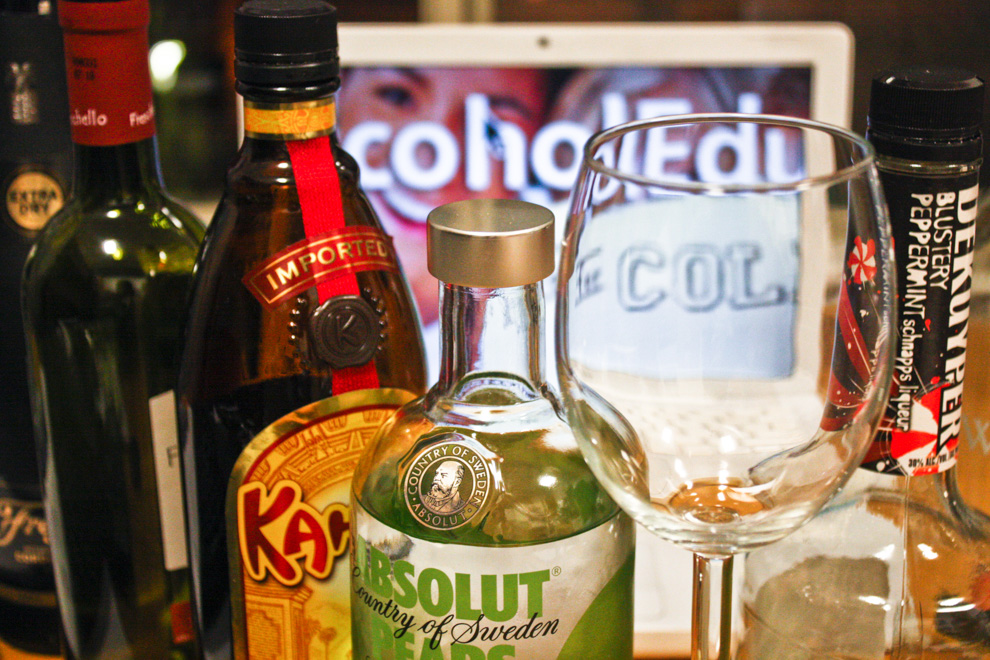Our names are Lea, Clarisse and Liza, and we are the co-directors of the 5-SURE on Foot program on campus, a student-led health and safety initiative that provides snacks and water and walks students home on the weekends. We are writing today out of concern for attitudes and behaviors toward alcohol on Stanford’s campus. As three people who work in alcohol safety, we witness parties on campus every single week. This quarter, we have watched unhealthy behaviors toward alcohol increase rapidly and frighteningly. We believe there are clear reasons for this increase, and we ask that the Stanford administration take the appropriate steps to address this alarming trend.
At the 5-SURE on Foot table, we know that significantly more parties than are registered occur every weekend. We have had nights with twice the usual numbers of people visiting the table; on one night, over 1300 students came to the table. While this in itself is not a bad thing, it is indicative of a large increase in the number of students engaging in parties and alcohol consumption. We have had to intervene in many more alcohol poisoning incidents than usual. Previously, we rarely had to deal with vomiting in our role, but this year, we have had several instances of vomiting at the table, and some students have been so intoxicated that they were extremely disoriented and could not stand even with assistance. We have also had to deal with near-transports or transports every weekend. Excessive alcohol consumption additionally poses hazards, including running in the dark across busy streets, disregard for COVID-19 safety, and property damage.
There are several plausible explanations for this recent change. The first is perceived attitudes toward drinking and partying culture on campus. New students have just been thrown into a completely new physical, academic and social environment. Academic stress and social interactions encourage students to push their boundaries without knowing their tolerance or comfort limits. This is, of course, not a novel occurrence; however, we have heard from students personally that they feel they need to hide drinking or do not feel comfortable asking for help if something happens while drinking. In addition, during the times we have intervened with alcohol poisoning incidents at the table, students become very nervous when we suggest calling a transport, the RD on call or even their RAs.
We have heard from students that another reason for the increase in dangerous drinking behaviors is the lack of alternative substance-free programming on campus. With the disappearance of Cardinal Nights, many students who don’t drink, or students who still want to go out with friends but don’t feel comfortable drinking, have no other structured nighttime entertainment options. We have heard from RAs that dormitories lack sufficient funding to provide consistent alternative programming, too. As a result, students feel there is nothing else to do on weekends except drink and go to parties, which both excludes students who don’t drink and pressures students who don’t know their limits to engage in drinking past their boundaries.
We believe there are clear ways to address this concerning increase in unhealthy alcohol-related behaviors. The first is to reinstate and increase substance-free programming, including Cardinal Nights. Prior to the start of the COVID-19 pandemic, Cardinal Nights provided university-sponsored substance-free events 2-3 nights per week. These events ranged from on-campus socials and craft nights to tickets for off-campus movies and concerts. The presence of Cardinal Nights improved campus morale and was an exciting and reassuring source of entertainment for all students. In addition, the presence of student staff at Cardinal Nights events was critical for student engagement in their events because students felt both more excited and comfortable attending events run by their peers. We also need to provide the resources and support for student dorms to host alternative programming and think carefully and holistically about attitudes toward handling substance use culture on campus. In part, the reason why Cardinal Nights programming was so beneficial was because it created a social environment that removed alcohol as the primary motivator, encouraging students to be clear and honest about their own boundaries and comfort levels. This way, we can create a campus culture that prioritizes students’ safety and positive peer interactions.
Please take the necessary steps to create a safe and healthy social environment for all students.
Sincerely,
Lea Wenting Rysavy ’22
Clarisse Hokia ’23
Liza Hafner ‘21 M.S. ‘22
5-SURE on Foot student directors
